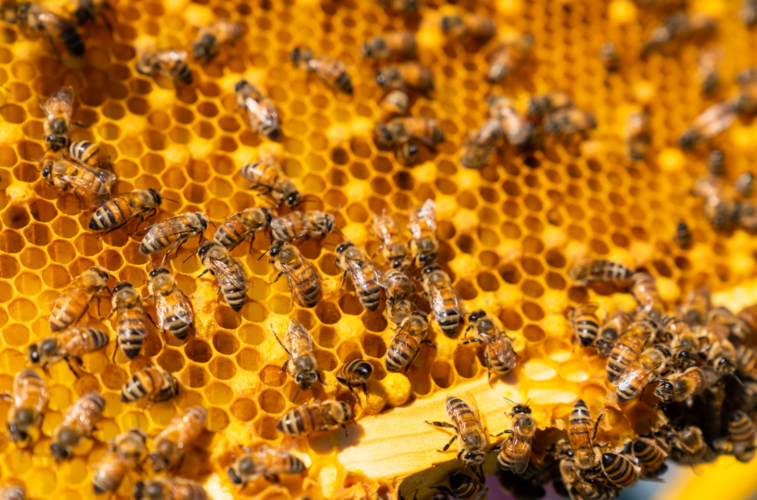
Beekeeping: Whats all the BUZZ?
A Sweet Way of Maintaining Ag Exemption in Texas
In the vast landscape of Texas, where agriculture plays a significant role, maintaining an agricultural exemption is crucial for property owners. One unique and rewarding way to achieve this exemption is through beekeeping for honey production. In this blog, we'll explore the world of beekeeping, its benefits, and how it can help you qualify for an agricultural exemption in the Lone Star State.
Section 1: Understanding Agricultural Exemption in Texas
Before diving into beekeeping, it's essential to understand what an agricultural exemption entails in Texas. Every county in the state provides tax incentives to property owners engaged in agricultural activities. This exemption is designed to support and promote agricultural practices, helping property owners reduce their property tax burden.
Section 2: Beekeeping as an Agricultural Activity
Beekeeping is not only a fascinating hobby but also a legitimate agricultural activity. In most Texas counties, beekeeping qualifies for the agricultural exemption, making it an attractive option for property owners looking to benefit from tax incentives. Bees play a crucial role in pollination, enhancing the productivity of crops and supporting biodiversity.
Section 3: Benefits of Beekeeping for Honey
Aside from the tax advantages, beekeeping offers a myriad of benefits for both the environment and the beekeeper.
Honey Production: The primary product of beekeeping is, of course, honey. Not only is honey a sweet reward for your efforts, but it also has numerous health benefits and is a sought-after natural sweetener.
Pollination Services: Bees are essential pollinators, contributing to the success of nearby crops. This indirect benefit of beekeeping can positively impact local agriculture.
Beeswax and Other Products: Beyond honey, beekeeping provides other valuable products such as beeswax, royal jelly, and propolis. These can be used for various purposes, adding to the overall economic value of beekeeping.
Section 4: Steps to Start Beekeeping in Texas
Now that you're convinced of the benefits, let's explore the essential steps to start your beekeeping journey in Texas.
Research and Education: Familiarize yourself with the basics of beekeeping. Attend workshops, read books, and connect with local beekeeping associations to gain knowledge.
Legal Requirements: Ensure compliance with local regulations and obtain any necessary permits. Check with your county extension office for specific guidelines on beekeeping in your area.
Selecting the Right Hive: Choose a suitable hive type for your location and climate. Common choices include Langstroth, Top Bar, and Warre hives.
Acquiring Bees: Purchase a package of bees or a nucleus colony from a reputable supplier. Introduce them to your hive following recommended procedures.
Regular Hive Maintenance: Beekeeping requires regular inspections and maintenance. Learn about common issues and diseases, and take preventive measures to keep your hive healthy.
Section 5: Keeping Records for Ag Exemption
To maintain your agricultural exemption, it's crucial to keep detailed records of your beekeeping activities. Most counties require some level of documentation. This may include:
Honey production records
Expense receipts
Sales records (if applicable)
Documentation of beekeeping education and training
By maintaining comprehensive records, you demonstrate to tax authorities that your beekeeping venture is a legitimate agricultural activity.
Conclusion:
Beekeeping for honey is not only a fulfilling hobby but also a practical way to maintain an agricultural exemption in Texas. Beyond the sweet rewards of honey, beekeeping supports local agriculture through pollination services. As you embark on this beekeeping journey, remember to stay informed, comply with regulations, and keep meticulous records to enjoy the tax benefits that come with your newfound agricultural endeavor.
FEATURED HOME LISTINGS
Provided by Central Texas MLS. ©All rights reserved.
Provided by Austin Board of REALTORS®. ©All rights reserved.
© Highland Lakes Association of REALTORS®. All rights reserved.
This information is for your personal, non-commercial use and may not be used for any purpose other than to identify prospective properties you may be interested in purchasing. Display of MLS data is usually deemed reliable but is NOT guaranteed accurate by the MLS. Buyers are responsible for verifying the accuracy of all information and should investigate the data themselves or retain appropriate professionals. Information from sources other than the Listing Agent may have been included in the MLS data. Unless otherwise specified in writing, Broker/Agent has not and will not verify any information obtained from other sources. The Broker/Agent providing the information contained herein may or may not have been the Listing and/or Selling Agent.






